| | | | | | | Presented By Babbel | | | | Axios World | | By Dave Lawler · Sep 08, 2022 | | Welcome back to Axios World. - We start this evening (1,877 words, 7 minutes) with the death of Queen Elizabeth II.
- Heads-up: I'll be on vacation next week, but back in your inbox a week from Monday.
| | | | | | 1 big thing: Queen Elizabeth II (1926–2022) | 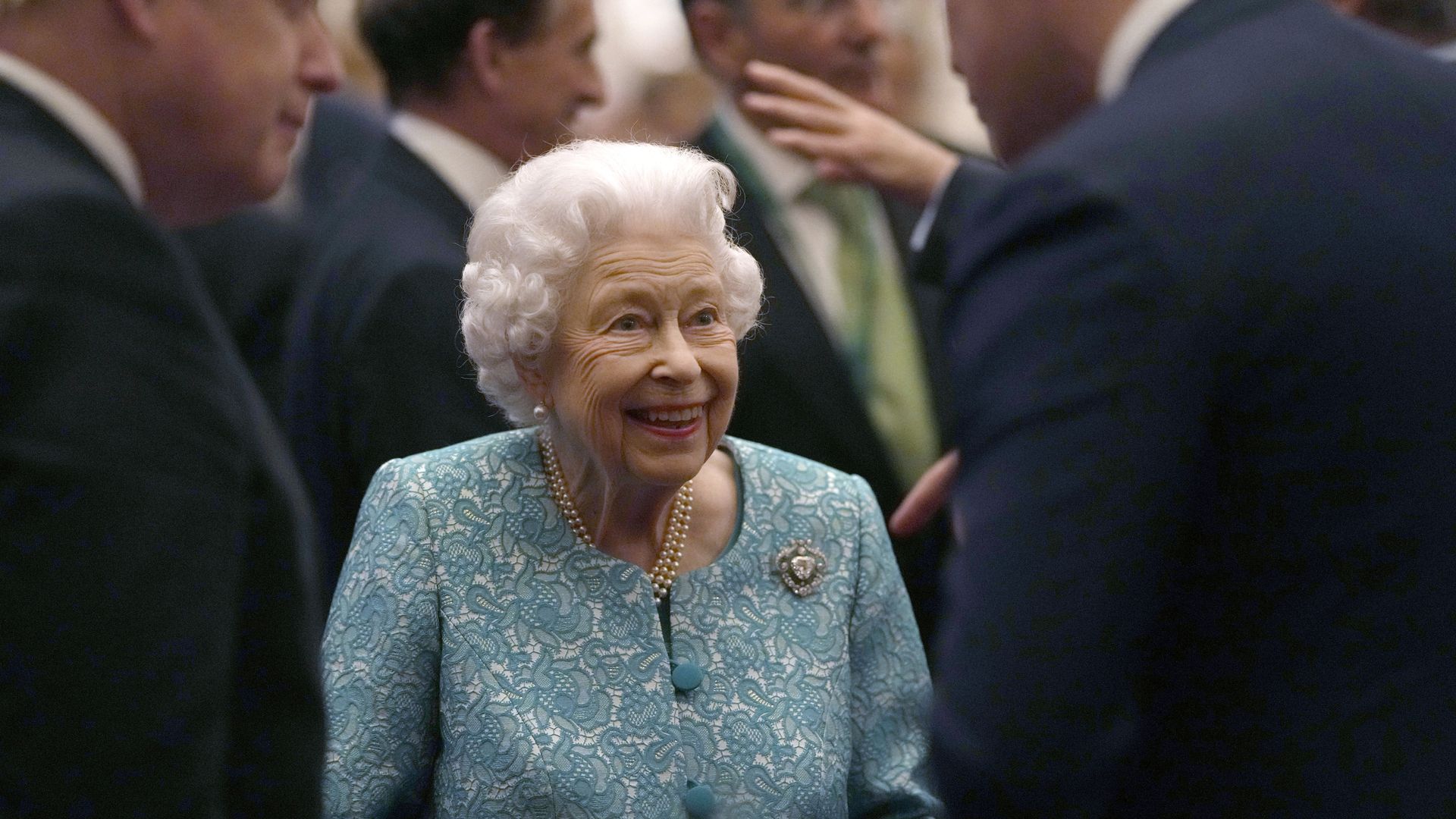 | | | Queen Elizabeth II at a reception at Windsor Castle in 2021. Photo: Alastair Grant/Pool/Getty | | | | Queen Elizabeth II died two days after dispatching her constitutional duty by accepting the resignation of her 14th prime minister and asking a 15th to form a government. The big picture: Her death at 96 after 70 years on the throne is one of the few global news events that genuinely will have been heard all around the world. For the U.K., the royal transition comes during what was already a period of tremendous upheaval. The second Elizabethan era spanned 15 prime ministers and 14 U.S. presidents, from Churchill and Truman to Biden and Truss. She oversaw the end of an empire, four decades of Cold War, entry and exit from the European Union, and enormous societal shifts. - Perhaps more than any living person, she represented stability and continuity in tumultuous times. The monarchy itself has survived, in part, thanks to her longevity and enormous personal popularity.
- Now the crown belongs to her son and successor, King Charles III, who is not as widely revered.
- "We usher in a new era in the magnificent history of our great country exactly as Her Majesty would have wished, by saying the words 'God save the King,'" Prime Minister Liz Truss said.
- Flags at the White House and public buildings across the U.S. will fly at half-staff. The Eiffel Tower will remain dark overnight. Church bells across the U.K. will toll for an hour on Friday.
Flashback: Elizabeth became heir apparent only after her uncle King Edward VIII abdicated in favor of her father, King George VI. - Her coronation in 1953 at the age of 27 was the first to be televised. The Palace and the British media had long been preparing for her death.
- What Brits heard: "The BBC is interrupting its normal programs to bring you an important announcement. ... This is BBC News from London. Buckingham Palace has announced the death of Her Majesty Queen Elizabeth II." That announcement was followed by the national anthem, "God Save the Queen."
70 years on the throne, in photos. |     | | | | | | 2. Turbulent times for the U.K. | 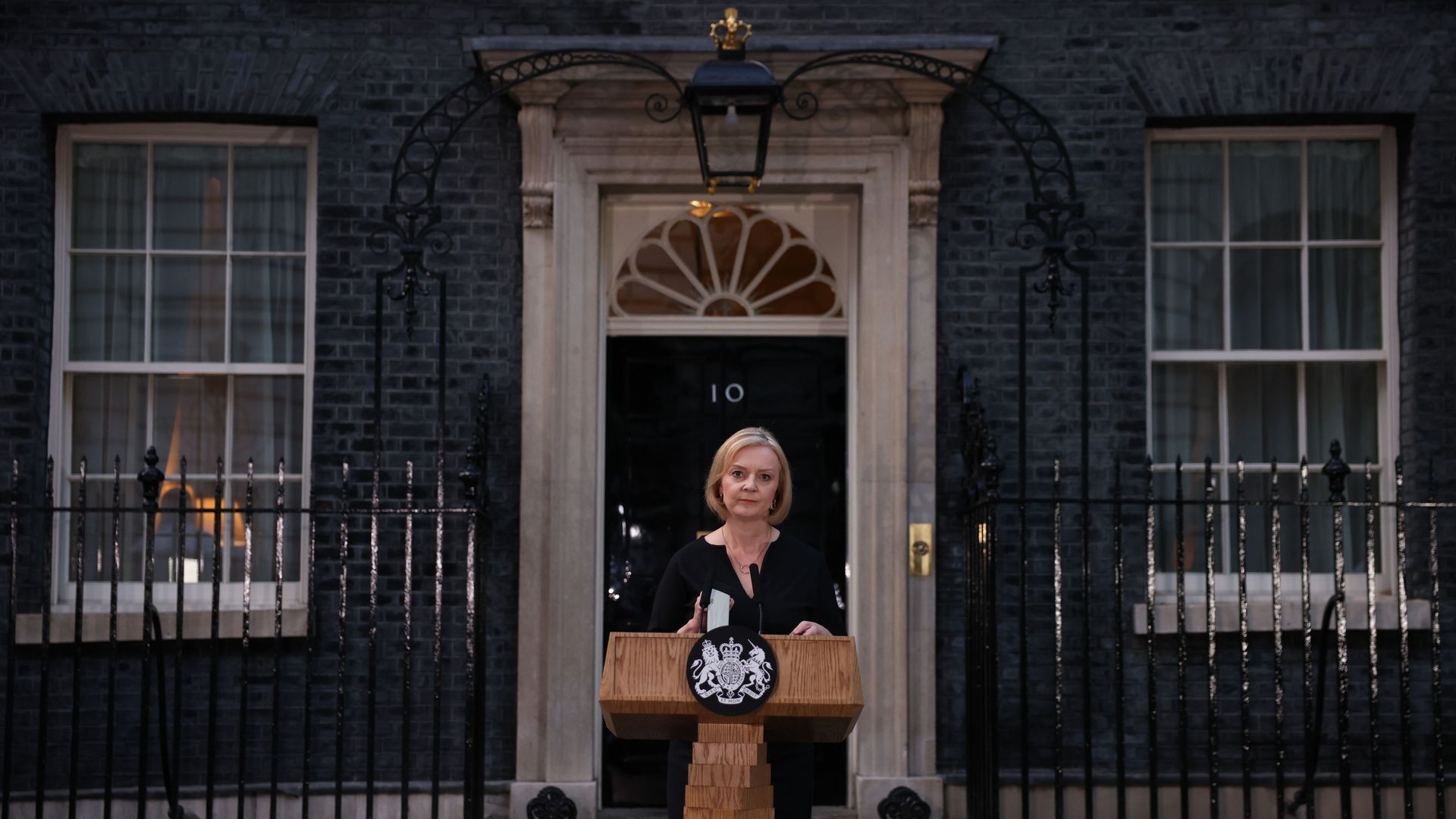 | | | Prime Minister Liz Truss issues a statement on the death of the Queen. Photo: Dan Kitwood/Getty Images | | | | Brits were anticipating a very different announcement today: Prime Minister Truss' plan to cap surging energy prices. The FT reports it's expected to cost $170 billion over two years — and possibly far more. Why it matters: Prices have grown so unaffordable that any prime minister would be compelled to act, but Truss intends to fund her plan through borrowing while also slashing taxes, a prospect that's sent jitters through the markets. - Experts note that her plan to cap prices for households for two years and businesses for six months will also do little to reduce demand. That could prolong the vicious cycle sparked by supply cutbacks from Russia.
- Meanwhile, inflation is expected to hit 13% this year, the pound is weaker than at any time since the mid-1980s, and a prolonged recession is likely.
- That's the context in which Truss takes power on Downing Street and King Charles III in Buckingham Palace.
Meanwhile: The EU rolled out energy proposals of its own to cope with "astronomic" electricity prices. - These include reducing energy consumption, taxing energy companies' increased profits, and capping the price of Russian gas imports.
- The Kremlin has threatened to respond to that last proposal by cutting off gas supplies altogether.
Go deeper: Truss' cabinet is first without white men in top jobs |     | | | | | | 3. Europe's energy crisis: How we got here | 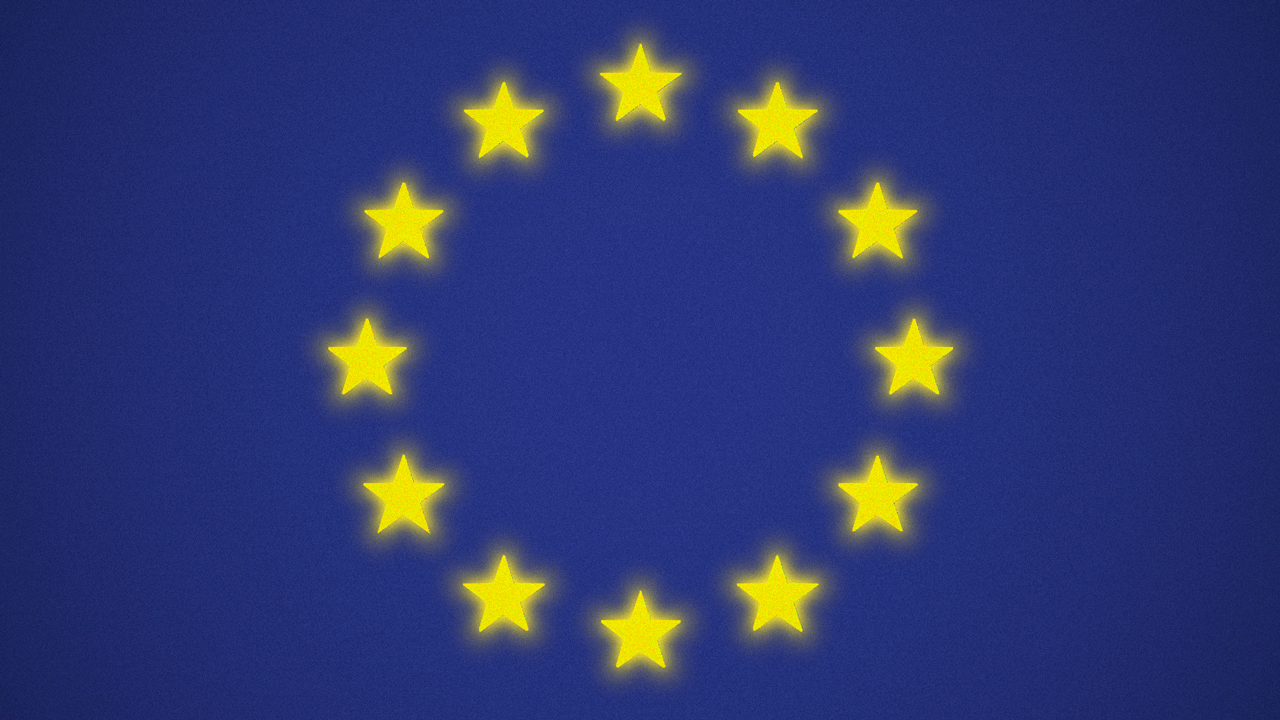 | | | Illustration: Shoshana Gordon/Axios | | | | As European countries moved away from coal and nuclear over the past decade or so, they became increasingly reliant on natural gas imported via pipelines from Russia. - Russia provided around 40% of the EU's gas supply as of 2020 and more than 50% of Germany's.
- Many European countries failed to diversify away from Russian gas or build in redundancy even after the invasions of Georgia in 2008 and Ukraine in 2014.
- For example, Germany continued to shut down nuclear plants as it proceeded with the Nord Stream II gas pipeline to Russia. The U.K.'s primary gas storage facility shut down in 2017, leaving it more vulnerable to a supply shock.
Then came the invasion of Ukraine, and with it, sanctions and pledges from Europe to wean itself off of Russian oil and, eventually, gas. - Gazprom cut gas flows to a fraction of capacity. It dragged out planned "maintenance" on the Nord Stream 1 pipeline, purportedly due to a faulty part.
- The Kremlin has now dropped the pretext and simply stated that if Europe wants gas, it should end the sanctions.
- As supply has dwindled, countries like the U.K. that aren't heavily reliant on Russian gas have seen prices surge because of competition for the limited supply available from countries like Norway.
State of play: Germany and others are building terminals to import liquified natural gas from countries like the U.S. — though America won't really be able to ride to the rescue, as Axios' Ben Geman reports. - Truss lifted a ban on fracking and wants to build new nuclear power stations. Neither is a quick fix.
- In the meantime, several eco-conscious countries like the Netherlands are turning to coal.
If the winter is mild, and EU countries cut gas consumption by 15% as requested, supplies might hold up even if Russia turns off the tap. - But a cold winter could prove very cold indeed. Countries are already having to make difficult choices about prioritizing households versus industries.
- What to watch: The gas crisis will likely carry over into 2023 as countries blow through their storage.
Go deeper: European Central Bank's super-sized rate hike |     | | | | | | A message from Babbel | | Get conversational in a new language | | |  | | | | Babbel offers bite-sized, 10-minute language lessons developed by over 150 linguists and voiced by native speakers. The impact: Users report being able to have a basic conversation after just three weeks of daily practice using Babbel. For a limited time, get up to 55% off your subscription. | | | | | | Bonus: Where in the world? | 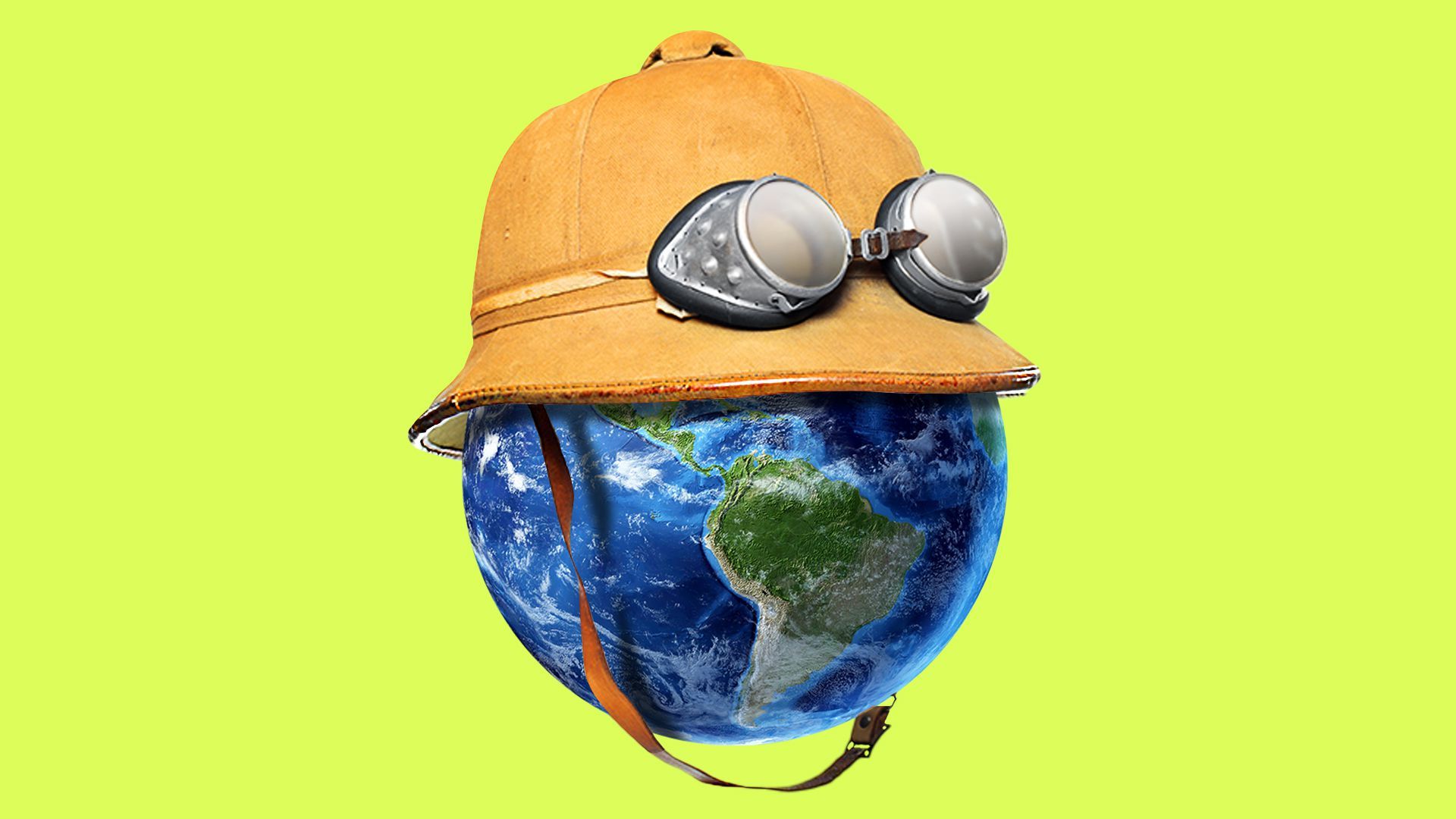 | | | Illustration: Natalie Peeples/Axios | | | | Can you name the two countries to which all five clues apply? - Former Soviet republic (15 countries left).
- NOT part of NATO (12 countries).
- Is NOT Russia, but does border it (5 countries).
- Is NOT partially occupied by Russia (3 countries).
- Predominantly Muslim (2 countries).
Scroll to the bottom for the answer. |     | | | | | | 4. Global news roundup | 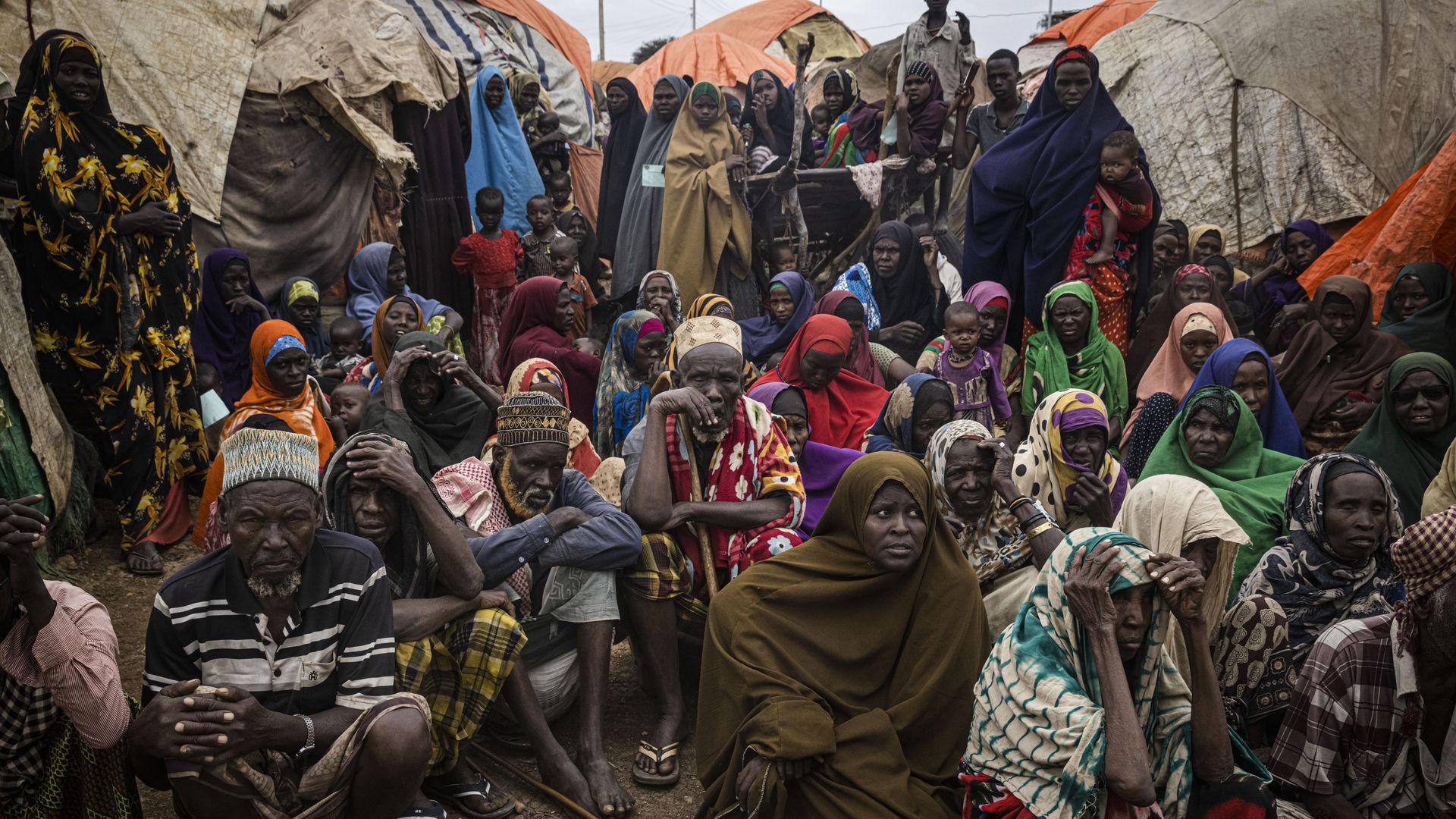 | | | A displacement camp for people impacted by drought in Baidoa, Somalia. Photo: Ed Ram/Getty Images | | | | 1. Famine is expected to be declared in parts of Somalia later this year, the UN warned Monday, as millions in the drought-stricken country face "catastrophic" levels of hunger and malnutrition, Axios' Laurin-Whitney Gottbrath writes. - "Famine is at the door, and today we are receiving a final warning," UN aid chief Martin Griffiths told reporters. Griffiths said the situation resembles the 2010–2011 famine that killed more than 260,000 people, mostly children.
- The big picture: For months, the UN and aid groups have warned of the increasingly dire situation facing parts of East Africa due to prolonged drought, conflict, spiking food prices made worse by the war in Ukraine and funding shortfalls. The region has seen four consecutive failed rainy seasons.
2. The Chilean government and opposition have started talks over how to proceed after voters soundly rejected a new progressive constitution, Axios Latino's Marina E. Franco writes. - Nearly 62% voted against the proposed draft, which would have drastically changed the country.
- State of play: President Gabriel Boric, for whom the result is a major blow, has called for a new drafting process. Some in the opposition say lawmakers should just amend the current constitution instead.
3. Brazilian President Jair Bolsonaro drew tens of thousands of supporters at rallies on Wednesday, the 200th anniversary of Brazil's independence. - While Bolsonaro's opponents objected to him hijacking a major national event with publicly funded political rallies, the "Brazilian Jan. 6" that some had feared did not materialize.
- Still, some of Bolsonaro's supporters called on the military to take control of the country's electoral institutions. Many are convinced that the polls are wrong and Bolsonaro could only lose through fraud.
4. Secretary of State Tony Blinken announced during a visit to Kyiv today that the U.S. will provide $2.2 billion in military aid to Ukraine and 18 other European countries "at risk of future Russian aggression," Axios' Ivana Saric writes. - Meanwhile, the U.S. says Russia is buying rockets and artillery from North Korea.
- What to watch: A surprise Ukrainian offensive near Kharkiv seems to be making progress. So does the offensive near Kherson in the south.
5. Vladimir Putin and Xi Jinping are expected to meet next week in Uzbekistan. It will be Xi's first overseas trip since the pandemic began. |     | | | | | | 5. Dispatch from Guatemala: Inside efforts to stop human smuggling | 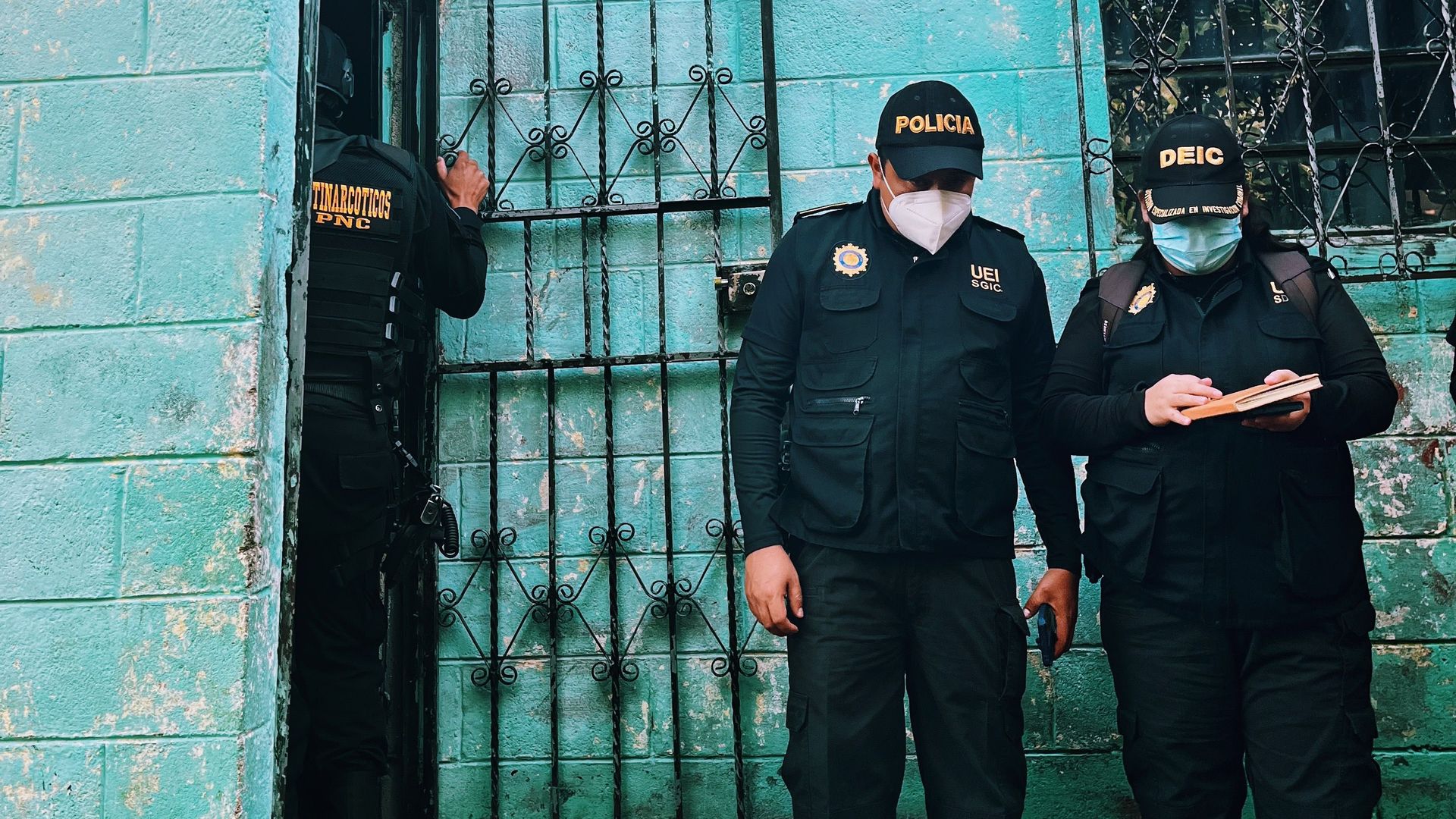 | | | Guatemalan investigators executing a search warrant. Photo: Stef Kight/Axios | | | | Two wide-eyed schoolgirls in uniforms watched in silence from their doorway early one morning last week as armed national police, working in partnership with U.S. officials, raided a neighbor's cinder-block home to seize evidence of a fraudulent visa-making operation. Why it matters: The suspect, working under the alias "Robocop," was the target of a special group of Guatemala's national police who are trained by U.S. Homeland Security officials to crack down on migrant and drug smuggling, human trafficking, fraud, and other crimes that impact American security. - Axios was invited to embed with the special team to observe how these Transnational Criminal Investigative Units, or TCIUs, operate — the first time a U.S. reporter was given such access.
- Human smuggling cases have become a primary focus for the unit after back-to-back years of record numbers at the U.S. border.
- I toured a U.S.-funded clandestine facility where vetted Guatemalan agents live and work alongside a handful of temporary U.S. investigators.
Go deeper. |     | | | | | | 6. What I'm reading: Could the CCP turn on Xi? | 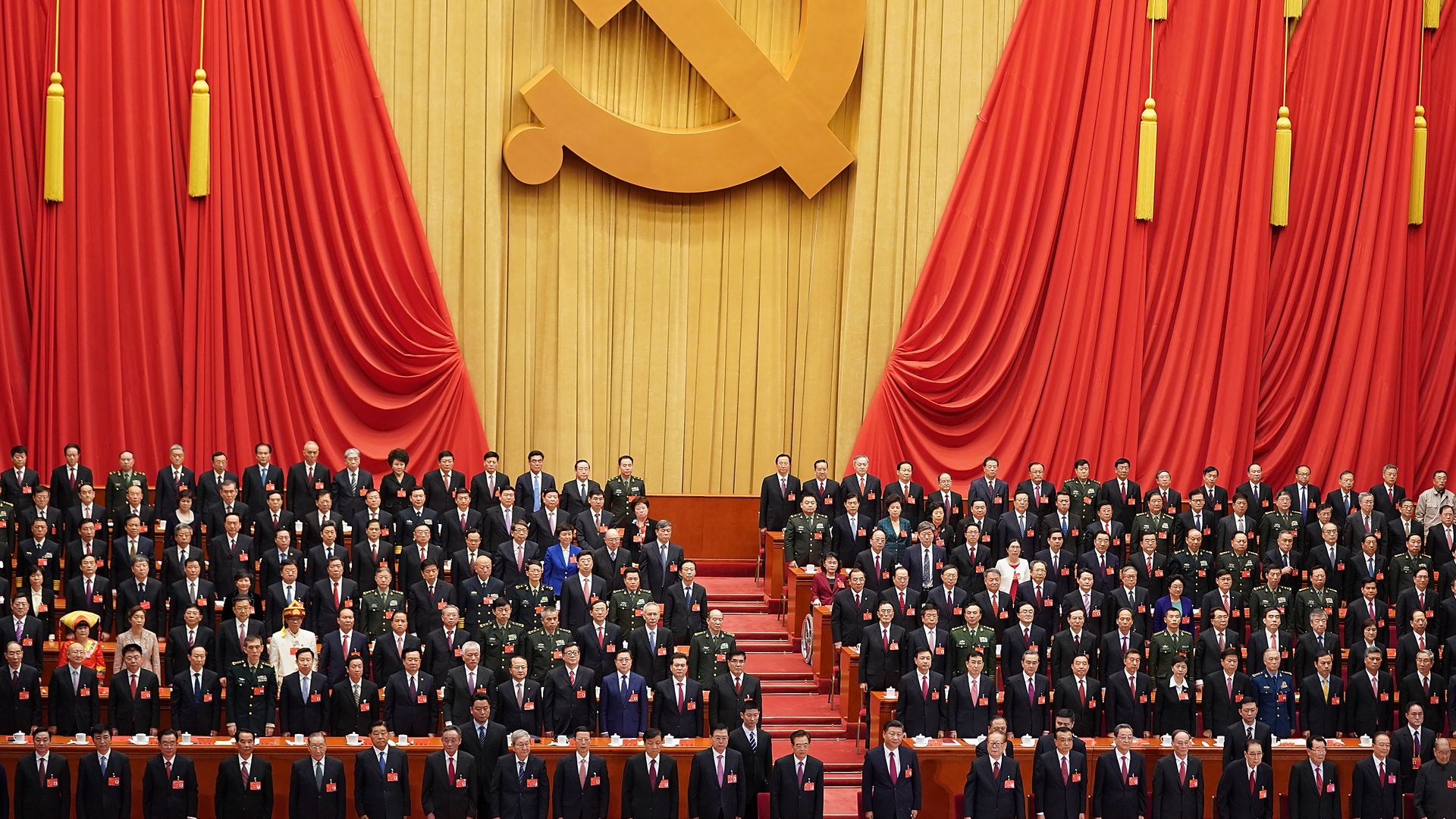 | | | Xi Jinping (front and center) at the 2017 Party Congress. Photo: Lintao Zhang/Getty Images | | | | The narrative ahead of the 20th Communist Party Congress, set to begin on Oct. 16, seems pretty clear: Xi Jinping will cruise to a third term and cement his near-total authority. Yes, but: A new Foreign Affairs essay by Cai Xia, a former professor at the CCP's Central Party School, serves as a reminder that the party isn't a monolith, and Xi might not be untouchable. - Xi has strangled civil society, purged critics under the guise of fighting corruption, and squashed collective decision-making, Cai writes. Even members of the Standing Committee must report directly to Xi for performance reviews, he notes.
- Xi's cult of personality is such that his portraits hang everywhere and his policies must be enforced to their letter, even when impractical.
But Xi's domineering style and questionable decisions have generated resentment from various CCP factions, Cai writes. - Premier Li Keqiang "has long quietly opposed Xi's zero-COVID policy," Cai writes. His allies refuse to wear masks.
- Meanwhile, one well-connected general challenged Xi over Xinjiang several years ago and later disappeared, according to Cai.
Why it matters: "The more a political system centers on a single leader, the more the flaws and peculiarities of that leader matter. And in the case of Xi, the leader is thin-skinned, stubborn, and dictatorial," Cai argues. - Cai suspects Xi is self-conscious that he rose to the top thanks in large part to family connections.
- What's next: While Xi will likely gain a new term, the party is not entirely behind him, argues Cai, who was expelled from the CCP after criticizing Xi in 2020.
|     | | | | | | 7. Stories we're watching |  | | | Using a temporary platform to cross the flooded Swat River in Pakistan's mountainous north. Photo: Abdul Majeed/AFP via Getty Images | | | - Beijing creating digital surveillance-based governance model
- U.S. ambassador to Russia leaves Moscow, will retire
- Israel confirms IDF soldier likely killed Shireen Abu Akleh, but rejects U.S. call to review rules of engagement
- Natural disasters: Parts of Pakistan "like a sea"; Minister says rich countries should pay for climate disasters; Earthquake in China kills at least 66
- Pentagon to investigate claim Afghans on watchlist were evacuated to U.S.
- Gulf nations ask Netflix to drop content that violates "values"
- Harris to lead delegation to Shinzo Abe's funeral
Quoted: "The pleasure of surpassing the U.K., who ruled over India for approximately 250 years, supersedes the mere statistics of improved ranking from the sixth-largest to the fifth-largest economy. It is special." — Indian Prime Minister Narendra Modi on India passing the U.K. to become the world's fifth-largest economy |     | | | | | | A message from Babbel | | Prepare for your next summer adventure with Babbel | | |  | | | | This summer — whether you're preparing for a trip abroad or looking for a new hobby — you could be speaking a new language in three weeks with Babbel. Even better: Explore the culture behind the language with special courses on topics like sports, travel, festivals and more. Get up to 55% today. | | | | Answers: Azerbaijan and Kazakhstan. |  | | Are you a fan of this email format? It's called Smart Brevity®. Over 300 orgs use it — in a tool called Axios HQ — to drive productivity with clearer workplace communications. | | | | | | Axios thanks our partners for supporting our newsletters. If you're interested in advertising, learn more here.
Sponsorship has no influence on editorial content. Axios, 3100 Clarendon Blvd, Arlington VA 22201 | | | You received this email because you signed up for newsletters from Axios.
Change your preferences or unsubscribe here. | | | Was this email forwarded to you?
Sign up now to get Axios in your inbox. | | | | Follow Axios on social media:    | | | | | |












No comments:
Post a Comment